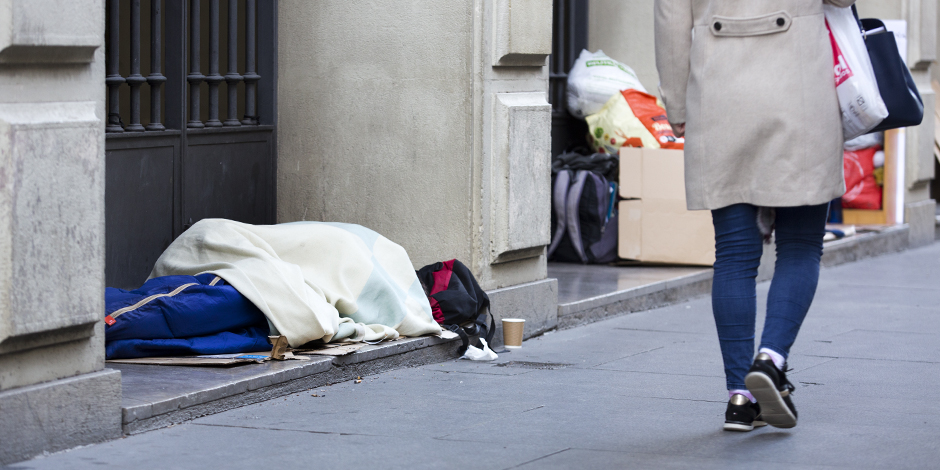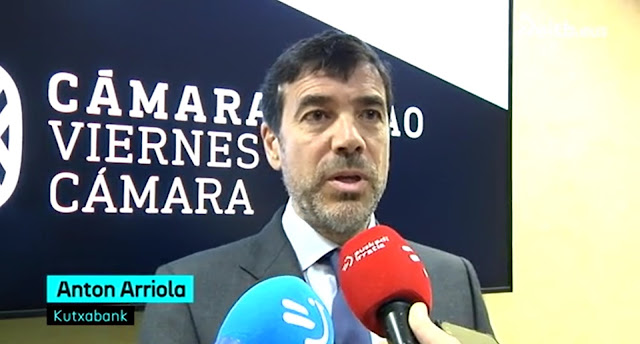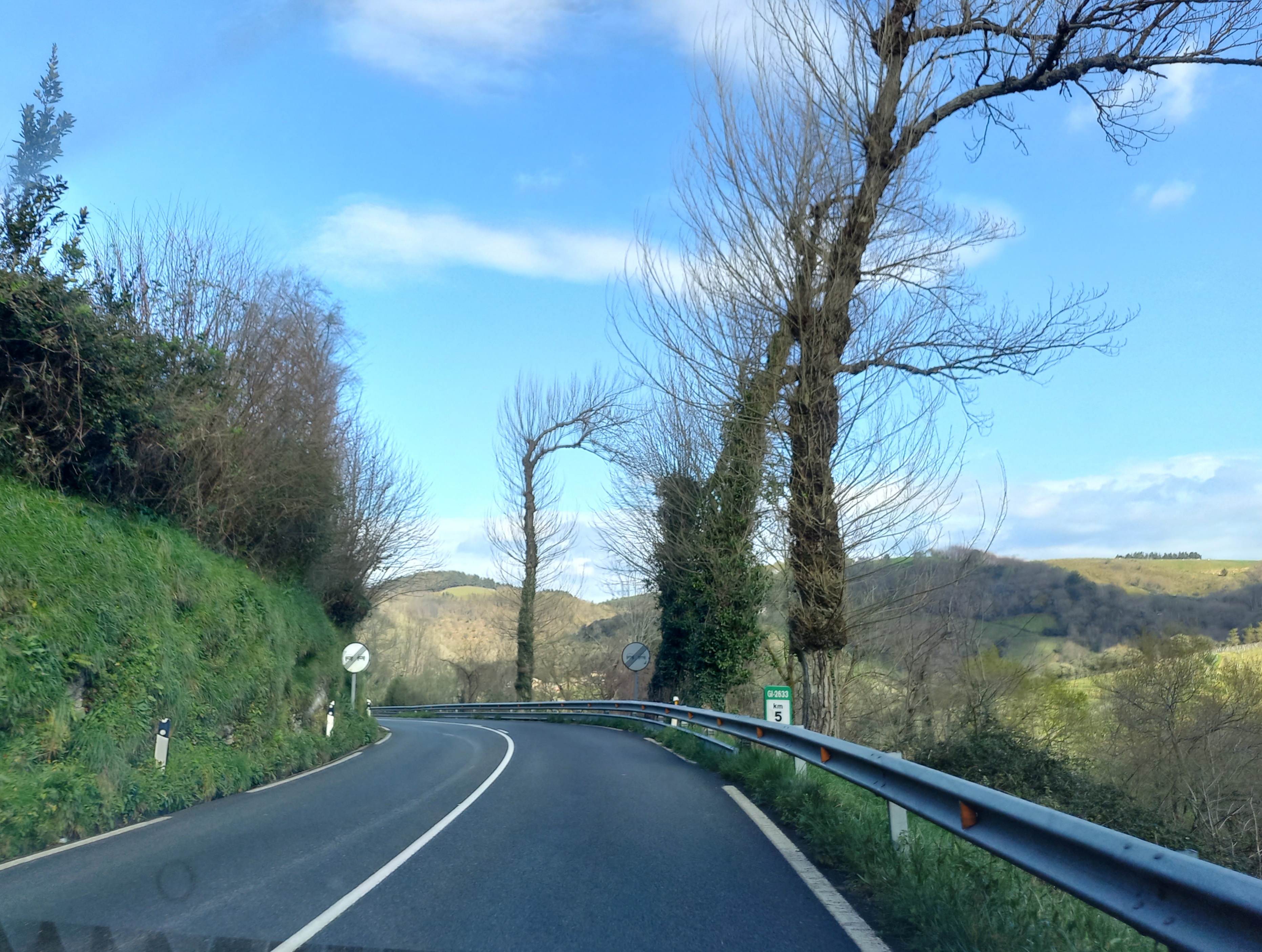More human rights and less extreme right
In this frenetic and vertiginous world in which we live, the social changes that take place little by little seem to us to be sometimes imperceptible, irrelevant or insignificant. That is not the case, however, and we have to be aware of it in order to act wisely. An example of this is that in recent years the extreme right is gradually spreading throughout the world. This trend is evident in the Spanish State and also in Europe, where, according to the last European elections on 9 June, one in four Members is already far-right. In other remote countries such as Argentina, Brazil and the United States, leaders of this ideological trend have also been highlighted. We have no more to take a map to realize this expansion.
Far-right groups have common features: populism, anti-feminism, nationalism, xenophobia, conservatism, authoritarianism and confusion of the rejection of pluralism. The policies advocating this dangerous cocktail violate the social and environmental advances made over decades in human rights, justice and solidarity. Therefore, their repressive policies and hate speeches against ethnic and religious groups, as well as against sexual and gender diversity, among others, promote a climate of intolerance and violence and systematically violate human rights. In addition, the arguments of the extreme right are based on lies and falsehoods that generate social tensions and polarize citizenship.
On the occasion of the International Day against Poverty and Exclusion, which takes place on 17 October, we would like to recall that policies driven by far-right parties promote austerity, privatisation and the reduction of social services, which are detrimental to the most vulnerable social sectors and which increase the gap between rich and poor. They also reject ethnic and racial diversity and rely on mistrust towards migrants or refugees, dehumanizing them and blaming them for all the evils of society. They also propose simple solutions for complex problems, without deepening and without taking into account the real causes.
It is urgent to be aware of the danger and influence of the stigmatizing and discriminatory discourses that are being interiorized in society. Even people who don't define themselves as far-right get to make those speeches.
In short, the rise of the extreme right poses a clear threat to equity, justice and human rights in the world, jeopardising freedom, democracy and social cohesion. Therefore, from the Poverty Cero platform of Donostia, composed of fourteen social organizations and social movements of the city that work against exclusion, poverty and inequalities, we demand the need to provide citizens with tools to cope with disinformation and the blood cells, so that they do not contribute to its dissemination. It is necessary to contribute from childhood to the development of skills and to the acquisition of tools that allow people to gain critical awareness for collective well-being, human rights and social justice. In addition, we propose to face fear with information, so it is necessary to be aware of the risk and influence of the rise of the extreme right and of the stigmatizing and discriminatory discourses that are being interiorized in society. And it's also that people who don't define themselves as far-right get to assimilate those speeches. We must also mobilise in defence of the human rights of all people and demand that the institutions take the necessary steps to guarantee these rights. We cannot make the mistake of legitimising the extreme right; we must establish health barriers to isolate and paralyse it.
We are aware that the rise of the extreme right has been favoured by many causes, and that the solution must be global and work in many sectors. That is why, in the face of the challenges and threats facing our world, we cannot stand still. We therefore invite citizens to participate and mobilise in the various initiatives we have organised on the occasion of the International Day against Poverty and Exclusion. Specifically, this Friday (18 May) we have organized in the Old Town of Donostia a a free vindictive bertso with the title Eskubide ez eskuin puntera, with the participation of Maialen Lujanbio and Unai Agirre, and Imanol Artola as a theme presenter.
Haizea Bernas Loinaz, Donostia Zero Poverty Platform
Bidali zure iritzi artikuluak iritzia@argia.eus helbide elektronikora
ARGIAk ez du zertan bat etorri artikuluen edukiarekin. Idatzien gehienezko luzera 4.500 karakterekoa da (espazioak barne). Idazkera aldetik gutxieneko zuzentasun bat beharrezkoa da: batetik, ARGIAk ezin du hartu zuzenketa sakona egiteko lanik; bestetik, egitekotan edukia nahi gabe aldatzeko arriskua dago. ARGIAk azaleko zuzenketak edo moldaketak egingo dizkie artikuluei, behar izanez gero.
Public education teachers have the need and the right to update and improve the work agreement that has not been renewed in fifteen years. For this, we should be immersed in a real negotiation, but the reality is deplorable. In a negotiation, the agreement of all parties must be... [+]
A few weeks ago, on Diputación Street, in the centre of Vitoria-Gasteiz, two men threw a homeless person off the small landing outside the place where he slept. In addition to being thrown away, a metal railing was immediately placed in front of the lonja. Although the place... [+]
From linguistics or glotophobia and, of course, hatred against Basque, we have often seen our Basque become the dandruff of all sticks. Last of all, the president of Kutxabank, Anton Arriola, has been shaking our language and giving us galantas.The President of Kutxabank,
... [+]
Do not look for this connection from Ezkio or Altsasu, let alone crossing the Ebro River through Castejón. The connection, or rather the connections, between the Basque Y and the AVE of Navarre is already a reality. It is these links in the plural that should concern us and... [+]
Don't make a fuss, don't confront, don't victimize... and obey. As oppressed subjects, in this case as Basques, we talk, how many times have we had to listen to them? Ironically, two years ago, at the Euskalale Independentiston Meeting, Esne Arzallus said: "We have arrived here,... [+]
Aurten "Israel Premier Tech" txirrindularitza talde israeldarra ez da Lizarraldeko Miguel Indurain Sari Nagusia lasterketara etorriko. Berri ona da hori Palestinaren askapenaren alde gaudenontzat eta munstro sionistarekin harreman oro etetea nahi dugunontzat, izan... [+]
Intsumituek denbora luzez egindako borroka gogorra eta mingarria izan zen, baina irabazi zuten, eta garaipen hura behin betikoa izango zela uste genuen, atzera bueltarik gabea. Baina badirudi, politikari batzuen ahotik aterata, eskalada militaristari gorazarre egin eta berriz... [+]
Punto Bobo liburuaren irakurketan murgilduta, Itxaso Martin Zapirain egilearen Eromena, Azpimemoria eta Isiltasunak Idazten ikerketa lanean sentitu nuen egiazkotasun eta maila etikoarekin egin dut berriz ere topo. Eta hortaz, hara bueltatu. “Oihu izateko jaio zen isiltasun... [+]
Dirudienez, Euskal Herrian migrazioa arazo bilakatu da azken bi hamarkadetan. Atzerritarrez josi omen dira gure lurrak. Gure kultura arriskuan omen dago fenomeno “berri” horren ondorio. Lapurretak, bortxaketak, liskarrak… Bizikidetza arazo horiek guztiak... [+]
Azken hamarkadetan euskararen biziberritzeak duen erronka handienetakoa, euskararen ezagutzaren unibertsalizazioarekin batera, erabilerarena da. Askotan, gazteen euskararen erabileran jarri ohi dugu fokua, baita euskararen erabilerak izan duen eta izan dezakeen bilakaeraren... [+]
Goizean jaiki orduko hasten dira desegokitasunak. Beharbada lotarako erabili duzun lastaira ere ez zen egokiena. Baina, ezin ba idatzi desegoki sentiarazten nauten guztiez. Horregatik, udaberriko ekinozioa –egunaren eta gauaren arteko oreka– dela eta, oraindik ere,... [+]
Ez da gauza berria politikari profesionalak gizarteko arazoak estaltzeko ahaleginetan ibiltzea. Azkenaldian Denis Itxaso -EAEko Etxebizitza sailburua- entzun dugu etxegabetzeei garrantzia kenduz eta aditzera emanez gurean bazterreko fenomenoa direla; eta Begoña Alfaro... [+]
Antropozentrismoaren aldaera traketsena eurozentrismoa izan zen. Europako mendebaldea, geografikoki, Kontinente Euroasiarraren penintsula txiki bat besterik ez da, baina lau mende luzez gertaera demografiko, teknologiko eta ideologiko batzuk zirela medio, bazter horretako... [+]
Badakizuenok badakizue, beste gauza asko bezala, euskararen aldeko borrokan ere politikoek, eragile batzuek eta hedabideek beraien antzezlana saldu nahi digutela, benetakoa balitz bezala.
Lehen urtean pozik jaso nuen, "Euskaraldi" hau. Zer edo zer zen, ezer ez zegoela... [+]










